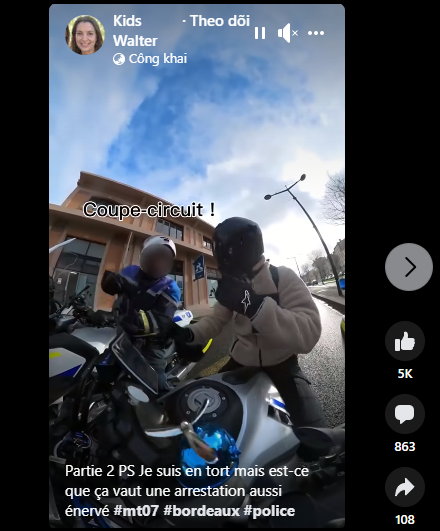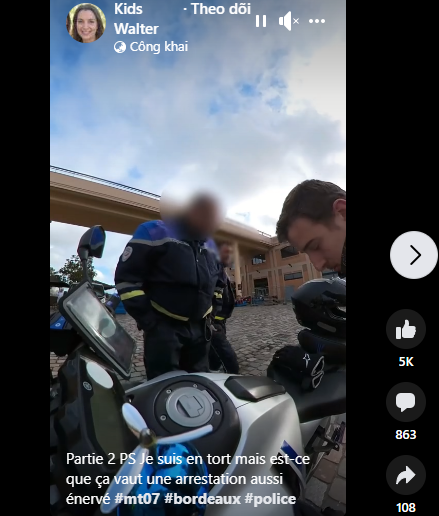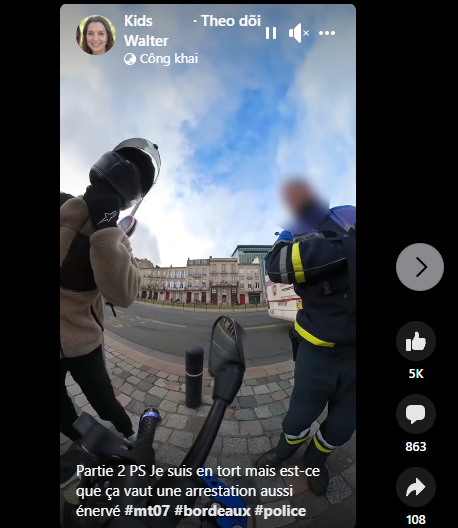NEXT PART AT THE END OF THE ARTICLE
I acknowledge my wrongdoing, but does it warrant such fiery indignation? Let’s confront it all together. They can be quite bothersome, those folks—I call them cowboys! Hello, Mr. National Police, papers in check.

In life, we all make mistakes, some big and some small. It’s a part of being human. However, the response to our mistakes can vary widely. In some cases, we may feel that the anger and condemnation we face are disproportionate to our actions.
I acknowledge my wrongdoing, but does it warrant such fiery indignation? Let’s confront it all together. They can be quite bothersome, those folks—I call them cowboys! Hello, Mr. National Police, papers in check.
In life, we all make mistakes, some big and some small. It’s a part of being human. However, the response to our mistakes can vary widely. In some cases, we may feel that the anger and condemnation we face are disproportionate to our actions.
It’s important to remember that people are fallible, including law enforcement officers. When individuals make mistakes, whether they’re civilians or those entrusted with upholding the law, there should be a balanced response that considers the circumstances and intent behind the actions.
Rather than reacting with unchecked anger, let’s encourage open dialogue and understanding. Labeling someone as a “cowboy” or resorting to hostility can hinder productive conversations and problem-solving.
As citizens, we have the right to question authority and ensure that law enforcement acts responsibly and within the bounds of the law. Likewise, law enforcement agencies should treat individuals with respect and fairness. It’s a two-way street where accountability and empathy play crucial roles.
So, to the national police, let’s ensure that our interactions are grounded in fairness and the rule of law. Rather than approaching situations with anger, let’s strive for understanding and cooperation. After all, we’re all in this together, aiming for a just and harmonious society.
In conclusion, acknowledging our mistakes and addressing them constructively is essential for personal growth and societal progress. Let’s work together to find common ground and promote a culture of accountability, respect, and cooperation. Only then can we build a more just and harmonious society for all.
It’s important to remember that people are fallible, including law enforcement officers. When individuals make mistakes, whether they’re civilians or those entrusted with upholding the law, there should be a balanced response that considers the circumstances and intent behind the actions.

Rather than reacting with unchecked anger, let’s encourage open dialogue and understanding. Labeling someone as a “cowboy” or resorting to hostility can hinder productive conversations and problem-solving.
As citizens, we have the right to question authority and ensure that law enforcement acts responsibly and within the bounds of the law. Likewise, law enforcement agencies should treat individuals with respect and fairness. It’s a two-way street where accountability and empathy play crucial roles.
So, to the national police, let’s ensure that our interactions are grounded in fairness and the rule of law. Rather than approaching situations with anger, let’s strive for understanding and cooperation. After all, we’re all in this together, aiming for a just and harmonious society.
In our journey towards a more just and harmonious society, it’s imperative that we acknowledge the challenges we face and continue the dialogue. Let’s delve deeper into the concept of accountability, not just for individuals but for institutions as well.
Law enforcement agencies, like any other organizations, must be held accountable for their actions. This accountability goes beyond addressing individual mistakes; it extends to systemic issues that can lead to repeated errors. By fostering transparency and independent oversight, we can ensure that the police serve as guardians of justice and uphold the rule of law.
Moreover, it’s crucial for communities to engage in proactive discussions with their local law enforcement agencies. Building trust and mutual respect takes time and effort, but it is essential for effective policing. Community policing initiatives, where officers and citizens work together to solve problems and address concerns, can be a powerful tool in bridging the gap between law enforcement and the community they serve.
In this process, education plays a pivotal role. Both citizens and law enforcement officers should be educated about their rights and responsibilities. Understanding the law and its application is fundamental to ensuring that interactions between police and the public are conducted fairly and justly.
As we continue on this journey, let’s also recognize the importance of empathy and compassion. People in uniform are not just officers; they are individuals with families, dreams, and their own share of challenges. Promoting mental health support within law enforcement and encouraging officers to seek help when needed can lead to more resilient and compassionate policing.
Ultimately, our goal should be to create a society where everyone feels safe, respected, and heard. This involves acknowledging mistakes, holding those responsible accountable, and working together to build a system that truly serves justice. The path ahead may be challenging, but it’s a path worth taking for the betterment of our communities and our nation.
In our ongoing pursuit of a just and harmonious society, let’s delve even deeper into the steps we can take to achieve this goal.
- Community Policing Initiatives: These initiatives are crucial in fostering trust and collaboration between law enforcement and the communities they serve. Community policing involves officers working closely with residents to identify and address local issues. By having a direct, positive presence in neighborhoods, officers can build relationships, better understand the concerns of the community, and work together to find solutions.
- Training and Education: Continuous training and education for law enforcement officers are essential. This includes not only legal training but also training in conflict resolution, de-escalation techniques, cultural sensitivity, and mental health awareness. Officers should be well-equipped to handle a variety of situations with empathy and professionalism.
- Transparency and Accountability: Establishing mechanisms for transparency and accountability is vital. This includes body cameras, civilian review boards, and independent oversight of law enforcement agencies. Ensuring that officers who engage in misconduct are held accountable sends a clear message that no one is above the law.
- Mental Health and Wellness Support: Policing can be a high-stress profession, and officers may be exposed to traumatic events. Providing mental health and wellness resources is essential to ensure the well-being of law enforcement personnel. This support can help prevent burnout, reduce the risk of misconduct, and promote officers’ mental and emotional health.
- Reforming Legislation: In some cases, reforming legislation may be necessary to address systemic issues within the criminal justice system. This could involve revisiting policies related to sentencing, bail, and non-violent offenses, with a focus on reducing mass incarceration and promoting rehabilitation.
- Community Outreach and Education: Engaging with the community through outreach and education programs can help bridge gaps and build trust. These programs can include workshops on citizens’ rights, forums for open dialogue, and educational initiatives to help community members better understand law enforcement procedures and challenges.
- Promoting Diversity: Encouraging diversity within law enforcement agencies is crucial. Diverse police forces can better understand and serve the needs of a multicultural society. Efforts to recruit, retain, and promote officers from underrepresented backgrounds should be a priority.
- Legislative Reforms: Advocating for legislative changes that address issues such as qualified immunity, excessive use of force, and racial profiling can lead to a fairer and more just criminal justice system.
- Restorative Justice: Exploring restorative justice practices can be an alternative to traditional punitive measures. This approach focuses on repairing harm caused by wrongdoing and involves all affected parties in finding resolutions.
- Media Literacy: Promoting media literacy can help the public better understand the complexities of law enforcement and criminal justice. Encouraging critical thinking and responsible reporting can contribute to more informed discussions and a more balanced perspective.
Our journey toward a just and harmonious society requires collective effort, ongoing reflection, and a commitment to change. By implementing these strategies and continuously striving for improvement, we can move closer to a society where justice, fairness, and respect for all are the guiding principles.
https://www.facebook.com/reel/967762070998052

